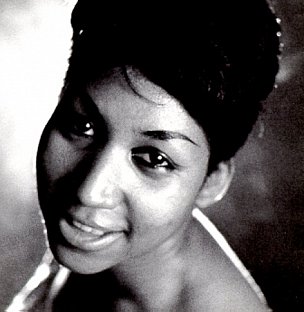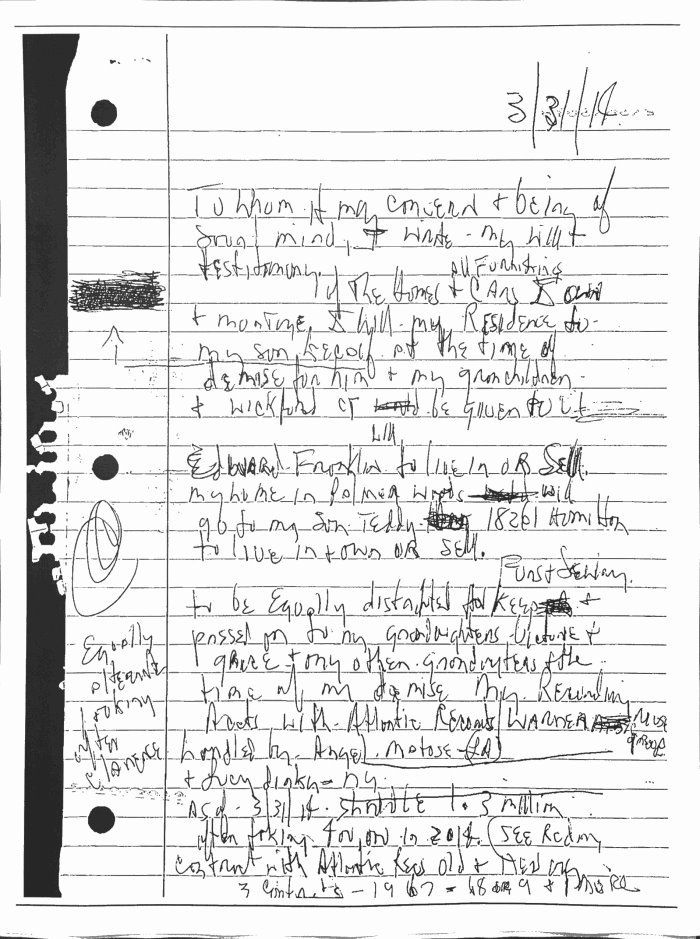Remember the Alberta farmer, Bill Bryson, who died after being pinned under his tractor. Before dying, he wrote his will by scratching it on the fender of his tractor. The scratching said, “In case I die in this accident, I leave all to my son, Bill Bryson”. The court accepted it as being legal. A lot of bureaucrats scoff at the validity of a handwritten will, known as a holographic will, and in some Canadian provinces, it is not accepted by the courts.
A lot of you must have seen a recent ruling in Michigan by a judge overseeing Aretha Franklin's estate. Her handwritten will was found between the couch cushions in her living room and was deemed valid by the judge. It was a rough, scribbled document with hard-to-read passages written by the star and signed by her with a smiley face in the letter 'A'.
In this age of emails and text messages, the handwritten document still has its place, even in a courtroom. For a lot of the younger generation who are still having trouble with cursive script (no longer taught in some schools), this must seem like a big step backward. Handwritten wills, medical files, and film scripts were thought to have disappeared in the 2000s along with fax machines. The advantage of a handwritten will is that you don't require witnesses, your handwriting suffices to prove your identity, but it must be signed. It can be as concise as a single sentence as in the example above. Even an audio or video recording cannot replace the written document, printed or handwritten.
In the case of Aretha Franklin's handwritten will, it was found in a notebook and dated four years before her death in 2018 of advanced pancreatic cancer. She was 76 years old and owned four homes. The document overrode a handwritten will from 2010 that was found at Franklin’s Detroit home under lock and key in 2019. The discovery of the two handwritten wills months after her death led to a dispute between her sons over what their mother intended to do with her real estate and other assets. Clearly, Franklin had decided to make some changes so that her son, Kecalf Franklin, would get a property valued at $1.1 million in 2018. Another son, Ted White II, who was favoured in the 2010 will, was given a house in Detroit, though it was sold by the estate for $300,000 before the duelling wills emerged. Franklin had notably removed a provision in the prior document which stated that the two older sons “must take business classes and get a certificate or a degree" to benefit from the estate. Aretha Franklin was one smart lady.
Handwritten documents have existed since time immemorial and their importance in the transmission of human knowledge has never been in doubt. It is perhaps time for new generations of men and women with their smartphones to recognize the importance of handwriting in a digital age. After the extinction of most of the human race in World War III, maybe handwriting will make a comeback with the disappearance of the web and Wi-Fi as we know it.



Comments ()